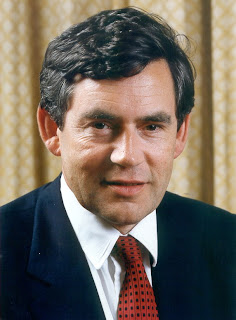Gordon Brown at the UN

I must say that I am impressed with Gordon Brown, the new Prime Minister of the United Kingdom. His speech today at the United Nations was particularly impressive as it focused, without the typical equivocation, on the need for the industrialized countries to live up to the promises made about the Millennium Development Goals.
Here are some highlights from the speech:
When one month ago I took office as Prime Minister, one of my first acts was to ask Ministers of the United Kingdom Government - from International Development and Foreign Office to Business and Trade, Treasury and the Environment - to report to me on what we must do to meet the world's Millennium Development Goals and to eradicate the great evils of our time: illiteracy, disease, poverty, environmental degradation and under-development.
Earlier this month, the UN Secretary General launched the UN's 2007 progress
report on the goals. He said there was a clear need for urgent and concerted
action.
Now one month later I have come to New York - to the city where the world
convenes - to support the Secretary-General's call and to tell the truth: the goals the world has set are not being met and we face an emergency - a development
emergency - and we need emergency action if we are to meet them.
And I have come today to New York because it was here seven years ago...
in this United Nations conclave...
with the eyes of the whole world upon us all...
that every world leader, every international body, almost every single country signed
a historic declaration for the new millennium, pledging to set and then to meet by
2015 eight development goals.
. . .
But seven years on it is already clear that our pace is too slow; our direction too
uncertain; our vision at risk.
The Millennium Development Goal to be met in 2015, is to reduce infant mortality by
two thirds. But unless we act, it will not be met by 2015, not even by 2030, not until 2050.
The Millennium Development Goal of 2000, to be met in 2015, is primary education
for every child. Unless we act it will not be met by 2015, not even by 2050 but at
best by 2100.
And unless we act, the planet will by 2015 be suffering not less but more
environmental degradation and millions of people will still be struggling on less than one dollar a day with millions of children still hungry.
As the UN Secretary General said earlier this month pointedly and persuasively
'millions of lives quite literally hang in the balance'.
The calendar says we are half way from 2000 to 2015. But the reality is that we are
we are a million miles away from success.
The world did not come together in New York in 2000, come together again in Doha
in 2001, in Johannesburg and Monterrey in 2002, in Gleneagles and New York in
2005 and Heiligendamm in 2007 to make, re-make and reaffirm promises, for us
then to break them.
We cannot allow our promises that became pledges to descend into just
aspirations, and then wishful thinking, and then only words that symbolise broken
promises.
We did not make the commitment to the Millennium Development Goals only for us
to be remembered as the generation that betrayed promises rather than honoured
them and undermined trust that promises can ever be kept.
. . .
Let me say to all our global institutions and international financial institutions: We have been standing at the crossroads of change for too long. It is time to implement the reforms needed, prove your relevance for the global age, and make the difficult choices that will give us an international system that is truly fit for the 21st century agenda — one that reflects new shared purpose for the age of globalisation, delivering change to those who need it most.
And let me say to governments of developed countries: We must deliver on our
previous promises — on 0.7 per cent, on making our aid more effective, on debt
cancellation, on trade, on universal access to AIDS treatment, on reducing carbon
emissions. And let us not just fulfil the commitments we have already made but
work with everyone who has a contribution to make. Not just more reports or more
studies - for we know what needs to be done - but action.
Read it all here (PDF file).

Comments